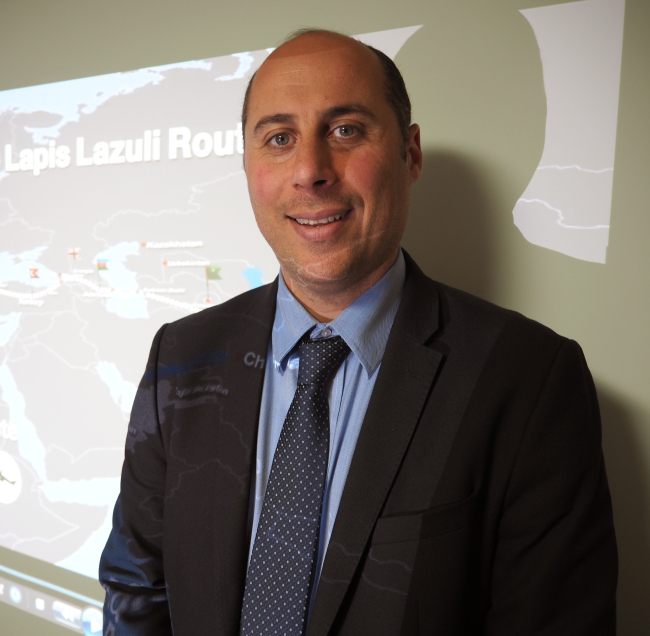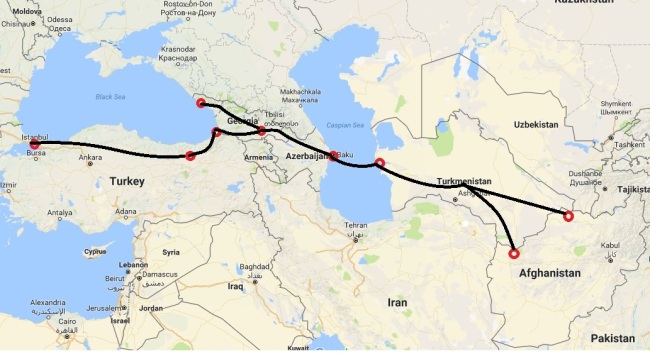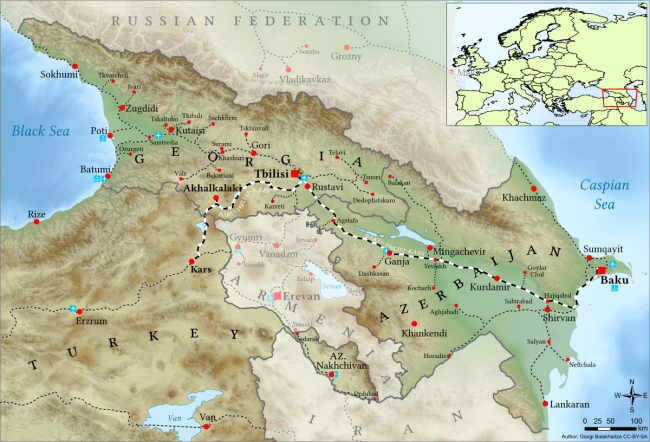‘Georgia set to expedite Europe-Asia trade via multimodal routes’
By Joel LeePublished : Nov. 27, 2017 - 17:40

Charting a democratic and free economic path since independence from the Soviet Union in 1991, Georgia has adroitly exploited its strategic location in the South Caucasus to connect Europe and Asia.
Georgia’s geostrategic value is set to multiply with the launch of the Baku-Tbilisi-Kars railway on Oct. 30 and signing of the Lapis Lazuli Corridor Agreement with Afghanistan, Turkmenistan, Azerbaijan and Turkey on Nov. 15, according to the country’s top envoy here.
“With the launch of the BTK line and upcoming opening of Lapis Lazuli, our attraction as a key connector of Europe and Asia is increasing,” said Georgian Ambassador Otar Berdzenishvili in an interview at the embassy in Seoul on Nov. 21. “Through these two routes, the trade of goods from China and Afghanistan through the South Caucasus all the way to Europe will be facilitated under a great reduction of time.”
The government of Georgia has concentrated its efforts to make the country a regional business hub, and calls on Korean companies to plow capital into the relatively unexplored destination, he added, mentioning hydro energy, transport infrastructure, tourism, information communications technology and e-government as sectors with untapped potential.
Berdzenishvili stressed that Tbilisi has implemented crucial economic and democratic reforms to spur private sector development and foreign direct investments. The World Bank’s annual report, Doing Business 2018, placed Georgia at the ninth spot out of 190 countries surveyed, a drastic improvement from the 100th spot over the last decade. The report also placed Georgia second in the world in terms of protection of minority investors.

The ambassador said his country provides political stability, a sound banking system and business credibility to outside investors. “Our government is doing its utmost to develop our country. We are one of few substantive democracies in our region with democratically enforced municipal, parliamentary and presidential elections.”
Georgia has free trade agreements with the Commonwealth of Independent States of Ukraine, Belarus, Moldova, Kazakhstan, Kyrgyzstan, Tajikistan, Uzbekistan and Turkmenistan, as well as neighboring Russia, Turkey, Azerbaijan and Armenia. The country also has in force the Deep and Comprehensive Free Trade Agreement with the European Union. Additionally, it closely trades and cooperates with the European Free Trade Association economies of Iceland, Liechtenstein, Norway and Switzerland.
On the question of EU membership, the diplomat said his country has continuously overhauled the government and economy to reach standards required by the EU. The Visegrad Group -- also known as the V4, a cultural and political alliance of four Central European states the Czech Republic, Hungary, Poland and Slovakia -- as well as the Baltic States of Estonia, Latvia and Lithuania have been highly supportive of Georgia’s potential membership, stressed the envoy.
“Georgia has fantastic relations with Eastern European countries also,” he said. “Our EU aspirations stem not only from the government but most fundamentally from our people. After we achieved independence from the Soviet Union, our people already declared that our future path lies in Europe.”
By Joel Lee (joel@heraldcorp.com)





![[Herald Interview] 'Amid aging population, Korea to invite more young professionals from overseas'](http://res.heraldm.com/phpwas/restmb_idxmake.php?idx=644&simg=/content/image/2024/04/24/20240424050844_0.jpg&u=20240424200058)











![[KH Explains] Korean shipbuilding stocks rally: Real growth or bubble?](http://res.heraldm.com/phpwas/restmb_idxmake.php?idx=652&simg=/content/image/2024/04/25/20240425050656_0.jpg&u=)

